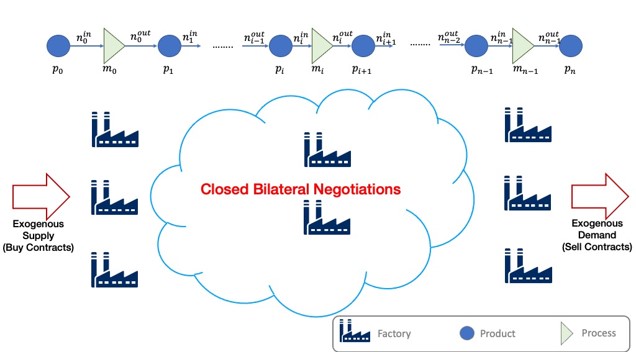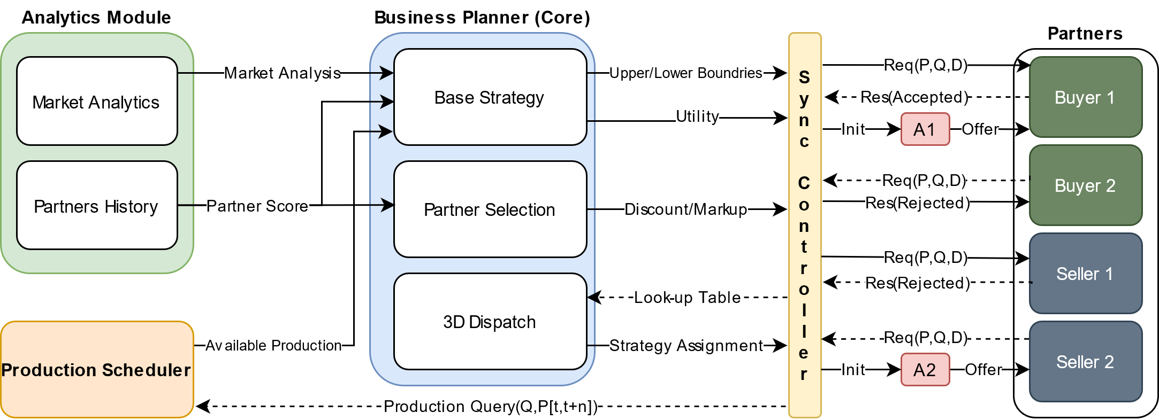Supply Chain Management League

SCML stands for Supply Chain Management League, which is a research competition that aims to foster research in multi-agent systems and supply chain management. The competition involves a simulation-based game that simulates a supply chain environment where autonomous agents act as factory managers and negotiate with each other to buy and sell products. The competition focuses on developing agents that can optimize their negotiation strategies to achieve high profits while operating in a dynamic and uncertain environment.
The simulation is carried out in discrete time steps referred to as days. Each day, multiple negotiations take place concurrently and outputs are manufactured from inputs. The objective of the game is to advance research on agent negotiation, with an emphasis on negotiation and a reduced focus on operations such as scheduling. The details and the rules of SCML 2021 can be accessed here.
There are two tracks in SCML: standard track and collusion track. In the standard track, the goal is for each agent to maximize its own profit while respecting the rules and constraints of the game. In the collusion track, agents can form coalitions and collude to maximize their joint profit. The collusion track is designed to explore the challenges of detecting and preventing collusion in a multi-agent system.

Based on the league requirements, we designed a negotiating agent, namely Charlie’s agent, which ranked 2nd place in both the Standard and Collusion tracks of the Supply-Chain Management League (SCML) 2021 with the collaboration of Brown University's E-GLAMOR Group.
Charlie's agent is a negotiating agent that uses five modules to manage its daily interactions with other agents in order to obtain profitable trades. The five modules are: Business Planner, 3D Dispatcher, Production Scheduler, Trading Strategy, and Analytics.
The Business Planner module is responsible for setting the pre-negotiation settings such as defining proposal boundaries and selecting partners. The 3D Dispatcher module tries to match buyer and seller contracts for all three issues simultaneously with the objective of signing profitable and deliverable agreements. The Production Scheduler module checks the available production slots during the negotiation and schedules the contract once it is signed.
The Trading Strategy module handles the signing, execution, and bankrupt processes. It signs feasible contracts that fit into the boundaries set by the planner. If a partner bankrupts, it tries to find new buyers or sellers for the cancelled contracts. The Analytics module is responsible for making predictions to decide the proposal boundaries and foresee risky agreements.
Overall, these modules work together to form a comprehensive agent that can profitably manage its daily actions. Charlie's agent performs better when it interacts with an agent that shows similar behavior, which is advantageous for the Collusion Track.
